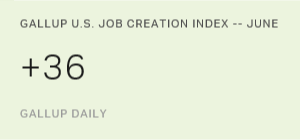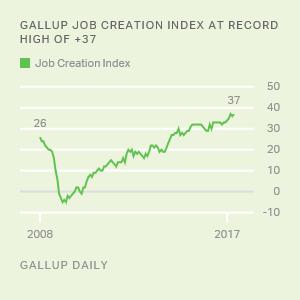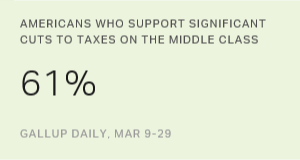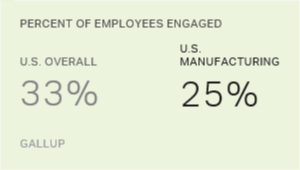Story Highlights
- Job Creation Index was +36 in June, just shy of record high from May
- South, Midwest regions have highest job creation scores
- East continues to trail behind other regions
WASHINGTON, D.C. -- Gallup's Job Creation Index was virtually unchanged at +36 in June, down one point from last month's record high. For 16 straight months, the Job Creation Index has been at or over +30, signifying a greatly improved and steady job market compared with the years during and immediately after the Great Recession.
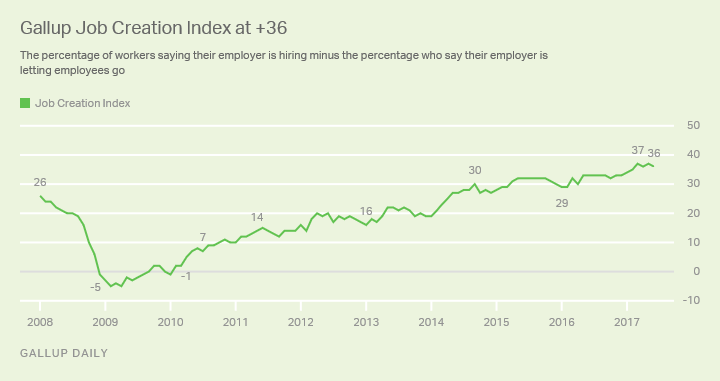
Various indicators suggest the U.S. economy is generating new jobs at a steady pace, although only 138,000 jobs were created in the month of May, the last month for which government data are available. This report fell short of expectations and was a drop from more robust government numbers in April. Gallup's Job Creation Index, by contrast, showed no significant drop in May and has again shown no significant change for June.
Economists claim that, at 4.3% unemployment in the U.S., the country is nearing "full employment" in which everyone who wants a job can find one. This does not mean every job is a "good job," however, as Gallup's Good Job Index shows. Even those with full-time jobs may not be employed in the type of job they would ideally like.
Gallup's Job Creation Index is based on employed U.S. adults' reports of whether their employer is hiring workers and expanding the size of its workforce, or letting people go and reducing numbers of employees. Gallup computes the index by subtracting the percentage of those who say their employer is cutting jobs from the percentage who say their employer is adding jobs.
In June, 45% of employees said their company was hiring, about matching the 46% in May. The percentage who said their company was letting workers go held steady at 9%. Forty-one percent of workers said their employer was not changing the size of its workforce.
The Job Creation Index is a nearly real-time indicator of the nation's employment picture across all industries and business sectors. Gallup's index does not measure the type (full time or part time) or quality of the job gains or losses as reported by workers.
South Leads in Job Creation in June
As has been the case since late 2016, the South (+40) and Midwest (+38) fared best in job creation in June, followed by the West (+34). The East continued to trail behind at +29.
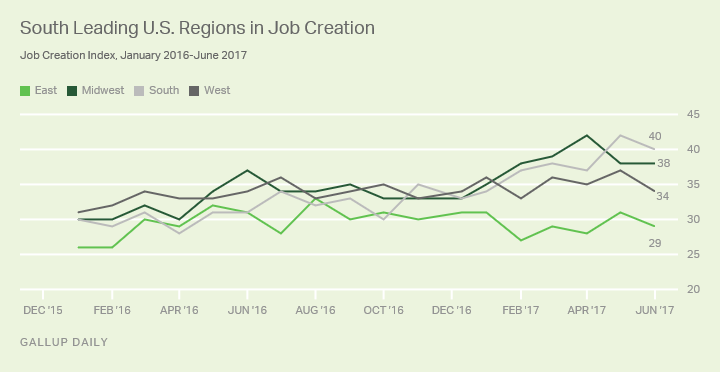
The East, Midwest and West have all recovered from the negative index numbers recorded during the Great Recession in 2009, when more workers reported their job was letting people go than hiring. The South is the only region that never dipped into negative territory on Gallup's Job Creation Index, reaching a low of 0 in February 2009.
Bottom Line
Workers' reports of job creation in the U.S. were steady in the month of June. Although the Bureau of Labor Statistics' monthly numbers through May have shown month-to-month fluctuation in the number of jobs created, Gallup's Job Creation Index has remained consistently strong throughout 2017. At the year's midpoint, the general jobs picture is relatively bright, as reflected in the Bureau of Labor Statistics' unemployment rate as well.
The only area that has struggled in relation to the rest of the U.S. is the East, where job creation has consistently lagged behind other regions and where Gallup's Job Creation Index has had difficulty staying above the +30 mark all year. If the East can consistently improve in job creation, it would likely bolster the JCI above +40 for a sustained period of time.
Still, Gallup's Job Creation Index is near its record high in June. With the index solidly in the +30s this year already, this may be a good portent for continued job creation in the second half of 2017.
These data are available in Gallup Analytics.
Gallup.com reports results from these indexes in daily, weekly, and monthly averages and in Gallup.com stories. Complete trend data are always available to view in the following charts:
Daily: Employment, Economic Confidence, Job Creation, Consumer Spending
Weekly: Employment, Economic Confidence, Job Creation, Consumer Spending
Read more about Gallup's economic measures.
View our economic release schedule.
Survey Methods
Results for this Gallup poll are based on telephone interviews conducted June 1-30, 2017, on the Gallup Daily tracking survey, with a random sample of 9,495 employed adults, aged 18 and older, and living in all 50 U.S. states and the District of Columbia. For results based on the total sample of employed adults, the margin of sampling error is ±1 percentage point at the 95% confidence level. All reported margins of sampling error include computed design effects for weighting.
Each sample of national adults includes a minimum quota of 70% cellphone respondents and 30% landline respondents, with additional minimum quotas by time zone within region. Landline and cellular telephone numbers are selected using random-digit-dial methods.
Learn more about how the Gallup U.S. Daily works.
